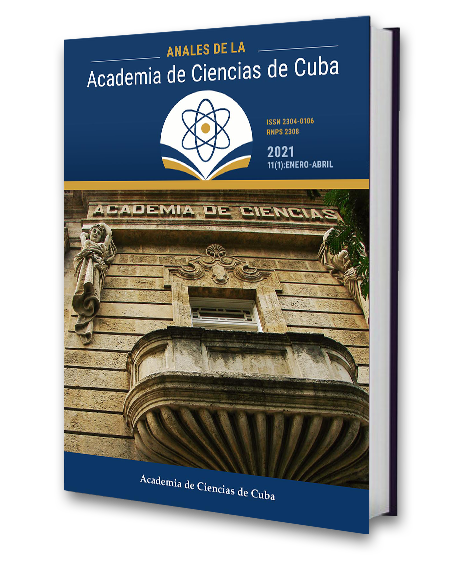Educación superior, gobierno y desarrollo local: avances prácticos y contribuciones académicas (2015-2019)
Palabras clave:
educación superior, gobierno, desarrollo localResumen
Introducción: El artículo refleja la investigación realizada a través de la Red nacional de Gestión del Conocimiento y la Innovación para el desarrollo local (GUCID). La pregunta que guía esta investigación es: ¿Cómo puede la educación superior, con su potencial humano, capacidades científicas y tecnológicas, continuar consolidándose como actor clave del desarrollo local a través de sus nexos con los gobiernos y otros actores locales? Objetivo: elaborar y difundir nuevas concepciones sobre los vínculos educación superior, gobierno, desarrollo local que nutran las políticas para el desarrollo territorial, y fortalecer el papel de la educación superior en los procesos de desarrollo local.
Métodos: De conjunto, el método preferente utilizado es el de investigación/acción.
Resultados: Se alcanzaron aportes teóricos y metodológicos importantes que enriquecen la comprensión de los vínculos universidad- sociedad, incorporando el ámbito local, con sus muchas particularidades y maneras específicas de gestionar formación, ciencia, tecnología e innovación. La investigación revela que han surgido nuevas concepciones, metodologías, herramientas, sistemas de trabajo que han servido para consolidar los vínculos educación superior-gobierno-desarrollo local. Los resultados de la investigación también enriquecen la teoría y la práctica del desarrollo local en Cuba, enfatizando la importancia de la creación de capacidades humanas, tecnológicas e institucionales.
Descargas
Publicado
Cómo citar
Número
Sección
Licencia
La revista Anales de la Academia de Ciencias de Cuba protege los derechos de autor, y opera con una Licencia Creative Commons 4.0 (Licencia Creative Commons Reconocimiento-NoComerciall 4.0). Al publicar en ella los autores permiten copiar, reproducir, distribuir, comunicar públicamente su obra y generar obras derivadas, siempre y cuando se cite y reconozca al autor original. No permiten, sin embargo, utilizar la obra original con fines comerciales ni lucrativos.
Los autores autorizan la publicación de sus escritos conservando los derechos de autoría, y cediendo y transfiriendo a la revista todos los derechos protegidos por las leyes de propiedad intelectual que rigen en Cuba, que implican la edición para difundir la obra.
Los autores podrán establecer acuerdos adicionales para la distribución no exclusiva de la versión de la obra publicada en la revista (por ejemplo, situarla en un repositorio institucional o publicarla en un libro), con el reconocimiento de haber sido publicada primero en esta revista.
Para conocer más, véase https://creativecommons.org






